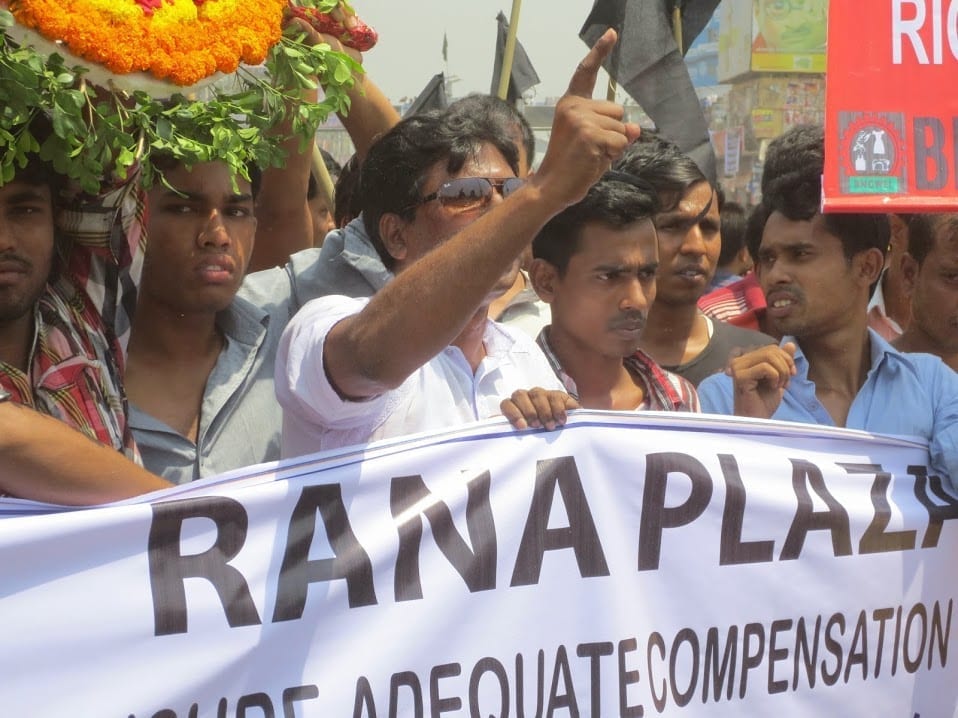Workers in Bangladesh—especially millions of poorly paid garment workers who often risk their lives in dangerous factories—won a new tool to advance their rights when the United States suspended preferential trade benefits with the country.
Yesterday’s announcement that the United States suspended its Generalized System of Preferences (GSP) agreement with Bangladesh based on chronic and severe labor rights violations “is a rare and clear statement that affirms that worker rights and livelihoods are not expendable,” says Solidarity Center Executive Director Shawna Bader-Blau.
Because the benefits are suspended and not terminated, Bangladesh has the opportunity to again qualify for the GSP benefit by improving worker rights, laws and practices. A key measure of that program will be whether newly registered unions will be allowed to represent worker interests.
“Since 2005, over 1,800 workers have died in preventable factory fires and building collapses in the Bangladesh garment industry,” says AFL-CIO President Richard Trumka. “Workers died because the government and industry violated safety standards to cut costs, while global apparel brands demanded production at the lowest prices in the world. Bangladesh’s workers, many of them young women, need good jobs with strong worker protections, a voice at work and safe work places.”
Many of Bangladesh’s 4 million garment workers risk their lives every day, working in thousands of unregulated and often poorly constructed factories. Yet despite their contribution to the $19 billion garment industry, they are denied workplace rights and toil in workplace conditions reminiscent of the U.S. sweatshops of 100 years ago.
“This long-awaited decision is an important step for workers’ rights,” says International Trade Union Confederation (ITUC) General Secretary Sharan Burrow. “It sends a strong statement to all governments and employers that violation of the fundamental rights of workers will not be tolerated if a country expects to participate in the global economy.”
Although the Bangladesh government has for years talked about improving the situation for workers, in the past 15 months:
• Aminul Islam, a labor leader, was killed and his murder has gone unsolved.
• The Rana Plaza collapse killed more than 1,127 garment workers in April.
• The November Tazreen Fashions fire killed at least 112 garment workers.
• More than 45 fire incidents have occurred at Bangladeshi garment factories since Tazreen, according to data compiled by Solidarity Center staff in Dhaka, the capital.
The ITUC and AFL-CIO are calling on the government of Bangladesh to act urgently and deliberately to ensure that the rights of workers are respected in law and in practice. Bangladesh unions and worker rights advocates from around the world also are calling on corporations throughout the supply chain to sign and implement a binding agreement regarding workplace fire and building safety in Bangladesh.
The proposed Fire and Building Safety Agreement, already accepted by more than 60 major brands, guarantees worker participation, recognizes the role of government and takes measures to combat corruption by requiring rigorous inspections, transparent reporting of audits and public oversight of results.
For more than 15 years, the Solidarity Center has supported worker rights in Bangladesh.

